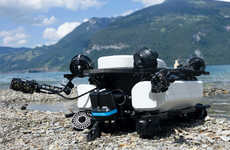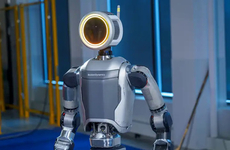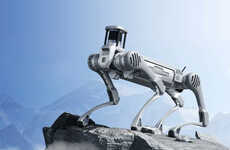
The DARPA Robotics Challenge Has Robots Competing in Different Tasks
Rahul Kalvapalle — June 9, 2015 — Tech
References: theroboticschallenge.org & gizmag
The DARPA Robotics Challenge is an event that encourages the creation of robots that could one day be of use assisting first responders during major disasters. The two-day challenge is set to play host to 23 international teams which vie for $3.5 million in prizes.
The challenge involves specific tasks that test a robot's ability to respond to disaster. The tasks include driving small cars, closing valves, climbing over debris, climbing stairs, cutting a hole in the wall using a drill and lots more.
While it is undeniably incredible cool to see sophisticated robots doing all kinds of cool things, the DARPA Robotics Challenge is about far, far more than just entertainment. The technology within the robots being showcased in the challenge has the potential to save lives and make people's lives better.
The challenge involves specific tasks that test a robot's ability to respond to disaster. The tasks include driving small cars, closing valves, climbing over debris, climbing stairs, cutting a hole in the wall using a drill and lots more.
While it is undeniably incredible cool to see sophisticated robots doing all kinds of cool things, the DARPA Robotics Challenge is about far, far more than just entertainment. The technology within the robots being showcased in the challenge has the potential to save lives and make people's lives better.
Trend Themes
1. Robotics Innovation - Opportunity for disruptive innovation in the robotics industry with the development of robots for disaster response and assistance.
2. Disaster Response Technology - Opportunity for disruptive innovation in the field of disaster response technology by creating robots capable of performing specific tasks in emergency situations.
3. Humanitarian Robotics - Opportunity for disruptive innovation in the field of humanitarian robotics by leveraging advanced robot technology for aiding first responders during major disasters.
Industry Implications
1. Robotics Industry - The robotics industry can benefit from the development of robots capable of responding to disaster situations.
2. Emergency Response Industry - The emergency response industry can benefit from the integration of advanced robotics technology to improve disaster response capabilities.
3. Humanitarian Industry - The humanitarian industry can benefit from the use of advanced robotics technology to aid first responders and enhance disaster relief efforts.
2.1
Score
Popularity
Activity
Freshness























